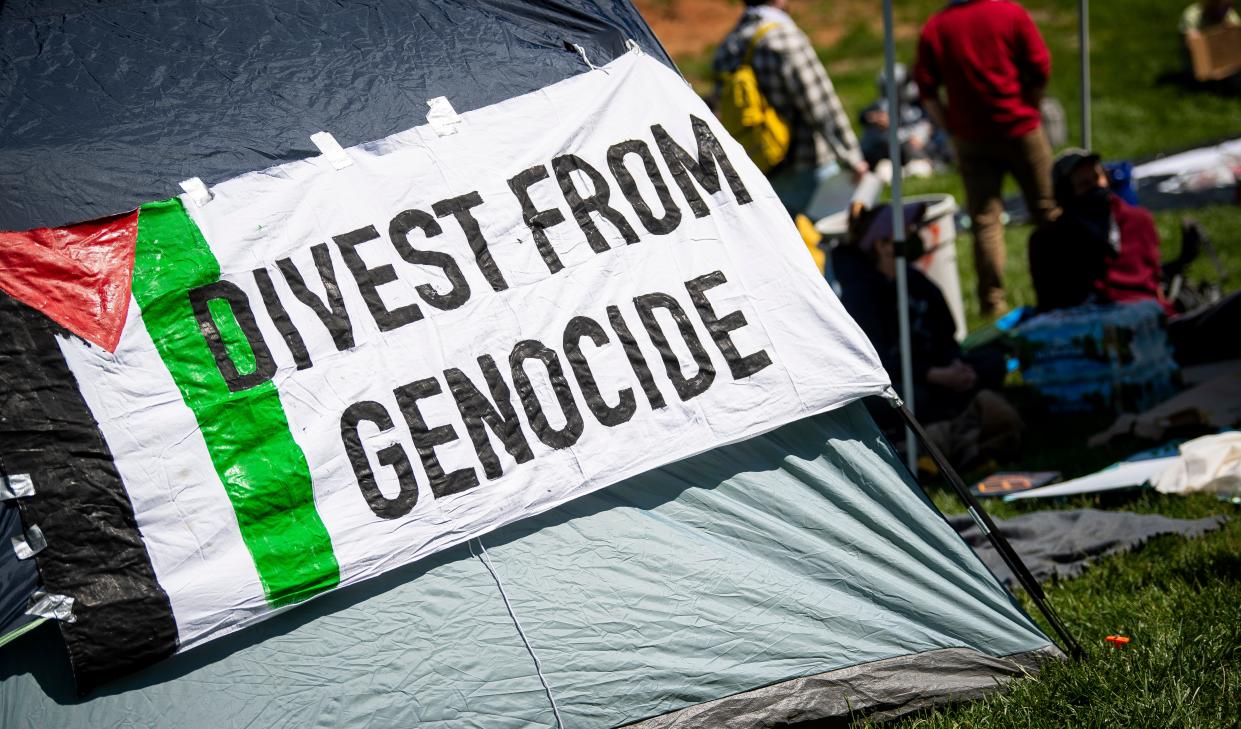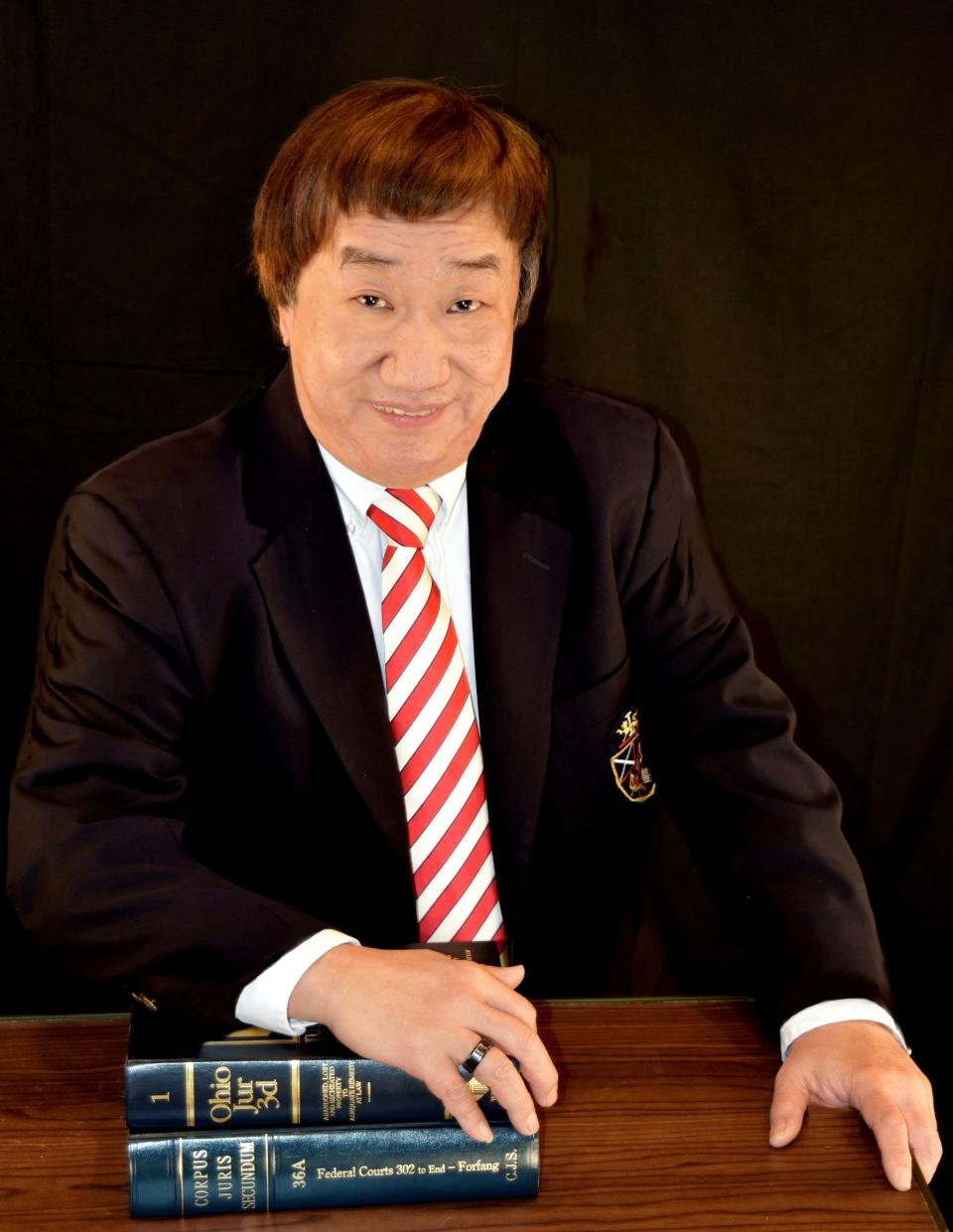It's more important to stop the fighting than whether to call wars genocide | Opinion

Today, the word "genocide" is the one dreadful concept on the minds of many well-meaning people of conscience. Truly, talking about genocide has gotten many people into all kinds of trouble. Presidents of some of the most prestigious universities have given up their jobs over this word. More plebeian members have gotten arrested for the overt angst about it.
First, what is genocide? Many people who are troubled with the three big wars that are ongoing today are tempted to associate those killed in these conflicts as victims of genocide. However, genocide has a particular historical context and legal meaning. Obviously, as a mere word, genocide is a composite of "geno" and "cide" which roughly can be traced to the Greek and Latin words meaning the "killing of a people." Today, the Oxford English Dictionary defines genocide as "the deliberate killing of a large number of people from a particular nation or ethnic group with the aim of destroying that nation or group."
The word was introduced into modern usage in 1944 by the international lawyer Raphael Lemkim. This was a time when the Allies were confident of victory against the Axis powers, i.e. Nazi Germany and Imperial Japan, and were thinking and talking about legal consequences for the leaders of these two countries responsible for starting the war and committing atrocities during the war.
Ironically, as it turned out in history, no war leaders from Germany and Japan, as a matter of application of international law, were brought to court, tried, and convicted of genocide. Even so, historians and other scholars routinely talk about the Holocaust as genocide. Wikipedia describes the Holocaust as the "genocide of European Jews during World War II. Between 1941 and 1945, Nazi Germany and its collaborators systematically murdered some six million Jews across German-occupied Europe, around two-thirds of Europe's Jewish population." However, the atrocities of the Nazis were not limited to Jews, but many people in both Western and Eastern Europe including Russia, were systematically murdered. A parallel genocide was carried by the Japanese armed forces against their neighbors in Asia.
It was only in 1948, the year Israel was established as a modern nation state, that genocide became part of international law through the United Nations Genocide Convention. A small number of individuals have been convicted in the decades that followed. Fortunately, the world has never suffered another war of such magnitude, and the people convicted of genocide are from mostly smaller countries in Africa (Rwanda and Ethiopia), Asia (Cambodia), Balkan Europe (Serbia, Bosnia and Herzegovina), Central America (Guatemala) and the Middle East (Iraq). Unlike Adolf Hitler and Hideki Tojo, their identities remain largely unknown to the world.
At this moment, three major wars are raging in the world − the civil war in Sudan (estimated two million killed), the Russian invasion of Ukraine (estimated 200,000 killed), and the Hamas-Israel war (estimated 35,000 killed). Only Israel has been accused by South Africa and Colombia in the International Court of Justice of the crime of genocide. The trouble with thinking and talking about genocide is that the accused must first be arrested and then be proven guilty of the "the deliberate killing of a large number of people from a particular nation or ethnic group with the aim of destroying that nation or group." It may be relatively easy to show that the pervasive killing of unarmed civilians with modern weapons of war is always deliberate, but it is an entirely different hurdle to prove "the aim of destroying that nation or group."
If Hitler were brought to trial today, the prosecutor should be able to show that Hitler and other Nazi leaders had planned and carried out a system of mass murder directed primarily at Jews that included death camps disguised as labor camps, gas chambers and ovens, all engineered to kill and dispose of millions of victims. However as noted, leaders of less technological advanced nations have actually been convicted of genocide − a total of two million people were killed in agrarian labor camps by the Cambodian Khmer Rouge armed with AK-47s and one million people in Rwanda died from gunfire and household machetes.
While the world has not witnessed another deliberate system of destroying a nation or group of people of the magnitude of the Holocaust, the three ongoing wars are troubling. The potential of more deaths from munitions, hunger and disease is ever-present. Perhaps, rather than attempting to pass the judgment of genocide, the world must make every human effort to first stop the fighting and provide for the immediate needs of the survivors and the reconstruction of their communities thereafter.
Charleston “C. K.” Wang is a resident of Silverton and a Cincinnati attorney.

This article originally appeared on Cincinnati Enquirer: The trouble with thinking, talking about genocide

